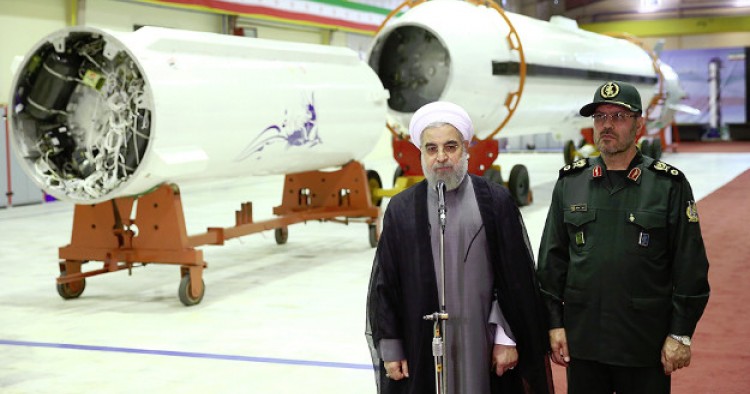Iran's Defense Minister Hossein Dehghan on Thursday depicted the U.S. naval forces in the Persian Gulf as armed intruders and called on Washington to leave the region. “What are the Americans doing in the Persian Gulf? It is better they leave this region and do not create trouble for the regional countries,” he said in a reaction to latest statements by U.S. military officials about Iran’s destabilizing role in neighboring Arab countries and harassment of the naval forces of the United States and its allies in the Gulf region. “Is it acceptable that an armed, insane thief breaks into someone’s house and expects the red carpet to be rolled out for him? This is one modern example of the 21st century barbarism,” he added.
Comment: The Iranian defense minister’s remarks appear to be a reaction to comments made by the commander of the U.S. Central Command, Army Gen. Joseph Votel, during a testimony to the House Armed Services Committee yesterday. Gen. Votel told lawmakers that Iran “poses the greatest long-term threat to stability” in the Middle East, and that the United States has "not seen any improvement in Iran's behavior” since Tehran signed the nuclear accord with world powers in July 2015. “Iran must believe there will be prohibitive consequences if it chooses to continue its malign activities designed to foment instability in the region,” he said, adding that the United States should hold Iran accountable for its actions. He also noted that Iranian boats regularly harass U.S. military and its allies in international waters – with about 300 incidents in 2016 alone. In another Congressional testimony on March 9, Gen. Votel, who is responsible for American security interests in the Middle East and Central Asia, had also said that Iran sought to be the “regional hegemon” through its proxies in the Middle East.
As Gen. Votel noted, the Islamic Revolutionary Guards Corps (I.R.G.C.) has in recent years expanded its direct military involvement in regional conflicts and depended its ties with terrorist and sectarian militant groups from Afghanistan to Syria, Iraq, Yemen and beyond. U.S. Navy commanders repeatedly express the concern that Iranian naval forces are disrupting international navigation by “harassing” warships passing through the strategic Strait of Hormuz. They caution that such incidents in future could result in miscalculation and trigger an armed confrontation. According to the U.S. Navy officials, the George H.W. Bush – a U.S. aircraft carrier – confronted a number of Iranian Navy fast-attack boats approaching a U.S.-led, five-vessel flotilla as it entered the Strait on March 21. The incident reportedly prompted the U.S. warship to send helicopter gunships to deter Iranians speedboats, some of which had reached as close as half a mile away from the aircraft carrier.
The Middle East Institute (MEI) is an independent, non-partisan, non-for-profit, educational organization. It does not engage in advocacy and its scholars’ opinions are their own. MEI welcomes financial donations, but retains sole editorial control over its work and its publications reflect only the authors’ views. For a listing of MEI donors, please click here.













